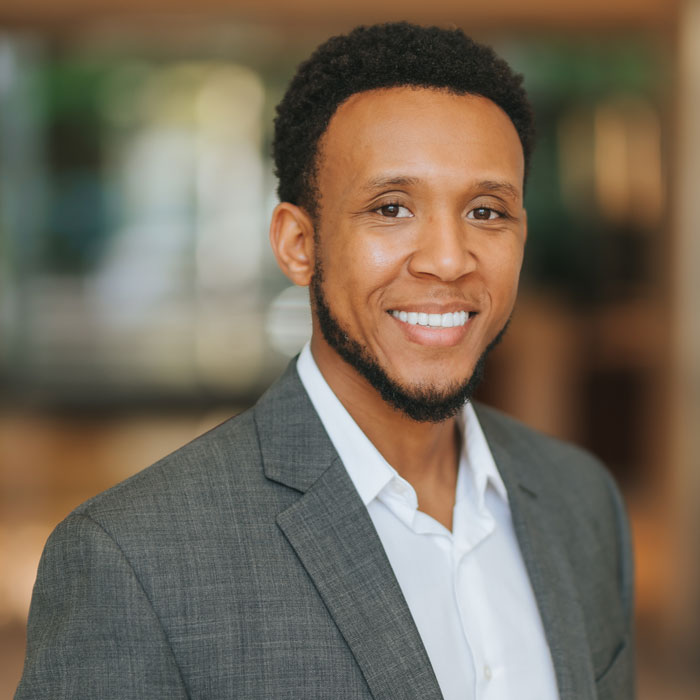Emotional intelligence (EI) is a buzzword that’s gained traction over the last few years, but the theories surrounding it are at least two decades old.
Emotional intelligence in leadership plays a critical role in how teams perform. The best leaders have a refined mastery of EI and know how to empathize with others.
This comprehensive guide covers all areas of emotional intelligence for leaders, from the theories behind it to ways you can improve.
What is Emotional Intelligence?
As defined by the American Psychological Association, emotional intelligence is
“a type of intelligence that involves the ability to process emotional information and use it in reasoning and other cognitive activities.”
Originally coined in 1997 by John Mayer and Peter Salovey, two American psychologists, this term means little when used solely in an academic context. However, since its inception, decades of research have been carried out to understand the impact of emotional intelligence personally and professionally.
Emotional intelligence for leaders is one component that researchers have studied well. Emotional intelligence helps us accomplish the following:
- Managing our emotions. Your emotional intelligence determines whether you let negative emotions go or whether you lash out.
- Overall life success. Both personally and professionally, our emotional intelligence quotient (EQ) influences our motivation and self-perception, meaning its a large contributor to life success.
- Empathy. Our EQ determines whether or not we notice and empathize with how others are feeling. This influences how we connect with others.
Emotional Intelligence for Leaders: 3 Theories
Theory 1: The Bar-On Model of Emotional-Social Intelligence (ESI)
This more recent theory, proposed in 2006, suggests that social skills and emotional intelligence, and their facilitators, should be considered together.
The clusters that Dr. Bar-On proposes are:
- Social awareness and interpersonal relationships
- Change management
- Emotional regulation and management
- Self-awareness and expression
- Self-motivation
Dr. Bar-On suggests that these five clusters contribute to our understanding of the self and others, as well as our self-expression. His theory considers emotional intelligence and cognitive intelligence to be separate.
Theory 2: Four Branch Model
The creators of this theory, Dr. Mayer and Salovey, are credited with coining the term emotional intelligence. They propose that the components of EQ fall under four categories:
- Perceiving emotions
- Understanding emotions
- Managing emotions
- Facilitating thought using emotions
All four relate to our ability to perceive and manage our emotions and how that impacts our relationship with others and ourselves.
Theory 3: Goleman’s Model of Emotional Intelligence
Dr. Goleman’s model is the most relevant to this article because his is most linked to managerial and leadership abilities. This 1995 model proposes these five main competencies:
- Emotional self-awareness (very similar to theory 2’s “perceiving emotions” skill)
- Motivation
- Empathy
- Self-regulations (very similar to theory 2’s “facilitating thought using emotions” skill)
- Social skills
These five skills are the ones we’ll dive into in more depth later on, as they’re the most relevant when it comes to emotional intelligence for leaders.
What Determines Your Emotional Intelligence Quotient?
While the main theories of emotional intelligence vary a bit on their core competencies, most of the essential skills are the same. These skills relate to managing emotions, understanding the feelings of others, and being in touch with your own emotions.
All theories we looked at have something in common: they propose emotional intelligence competencies as abilities, not innate or static traits.
Compare a “trait” such as brown hair, height, or a slow metabolism to an “ability” such as athleticism, learning languages, or emotional intelligence. You can’t (organically) alter how tall you are, but you can work on your language learning ability through practice and repetition.
While our emotional intelligence is linked to our brain’s function, most of it is learned through everyday experiences. This means you decide how emotionally intelligent you are. Excellent emotional intelligence for leaders means working on these skills every day to be the best leader possible.
Related: Building a Thriving Leadership Development Program and Why it Matters
The 5 Parts of Emotional Intelligence
Skill 1: Empathy
Emotional leadership means understanding what your coworkers and team are going through. Rather than lashing out when someone does something to upset you, you reflect that others experience situations which contribute to their behavior.
You empathize with others, don’t let their actions affect you, and do what you can to help.
One excellent way to boost your understanding of others is to ask them about their situation. If their behavior suddenly changes or becomes uncharacteristic, having an honest conversation can help.
Emotional intelligence for leaders can also mean the following:
- Observe body language. One theory states that 55% of communication is nonverbal. When someone crosses their arms, averts eye contact, or fidgets with their hair, you can pick up on how they’re feeling. Pay attention to the clues people tell you with body language.
- Respond to emotions. Address people’s feelings when their behavior is less than desirable. If someone’s constantly late to work because they’re frazzled or burnt out, acknowledge they’re feeling that way and work with them to minimize those negative emotions.
Emotional intelligence in leadership means never jumping to conclusions or dismissing how others are feeling.
Skill 2: Self-Awareness
Emotional intelligence for leaders means being self-aware. You need to stay on top of how you’re feeling, how that comes across to others, and what your strengths and weaknesses are.
To improve self-awareness, you can:
- Slow your pace. Although many of us breeze through strong emotional responses and let them affect us, the best leaders slow down and analyze their responses. While some situations are beyond your control, your reaction is entirely up to you. Consider why you feel the way you do, and choose to respond differently.
- Journal. Many of us still dismiss the usefulness of journaling, but even spending a few minutes per day writing down our thoughts can help tremendously with self-awareness. It gives you insight into your thoughts and calls them into question where relevant.
Skill 3: Self-Regulation
If you’re still wondering how to improve emotional intelligence, work on self-regulation. Emotional intelligence for leaders involves regulating your responses to emotions so you aren’t lashing out at others or otherwise negatively affecting them.
Self-regulation, according to theory 3, also involves a leader’s accountability.
Here’s how you can improve self-regulation:
- Be accountable. Don’t blame others when you make a mistake. Own up to it immediately and face the consequences. Do whatever you can to rectify the situation.
- Be calm. Whenever you’re in a challenging situation, be in tune with how you react. Write down negative thoughts and do away with them. Slow your breathing and be mindful. Even challenge your beliefs to disprove the unfair ones.
- Know your values. Your code of ethics is a large part of self-regulation. If you know what’s important to you, you won’t struggle in the face of a tough decision.
Skill 4: Social Skills
Emotional intelligence in leadership means developing your social skills. Important social skills include communication, conflict resolution, acknowledgment of others, and more. Let’s break some of these down:
- Conflict resolution. All leaders run into conflict. The best ones know how to diplomatically handle disputes between customers, vendors, or team members.
- Praise others. Simply being told you’ve done a great job means a lot to your team members. Learning when to give praise is important and can inspire loyalty.
- Communication skills. Active listening, persuasion, and an awareness of different communication styles are all components of solid communication skills. Improving these will improve your emotional intelligence in the workplace.
Skill 5: Motivation
Emotional intelligence for leaders is not without motivation. The best leaders are ones who work hard and find inspiration in their daily activities. Here’s how you can boost your motivation and inspire others along the way:
- Be optimistic. The most motivating leaders are optimistic in the face of hardship. Inspiring others keeps morale and productivity high.
- Set goals. Short- and long-term goals keep you motivated when the day-to-day gets tough. Never forget to set goals and check-in with your team regularly on their goals.
- Remember the why. Why are you doing what you’re doing? What you’re doing is far less motivating than why you’re doing it. If you’re struggling to develop a why, it may be a sign to transition to a new role.
Are you a senior executive who’s looking to transition roles and rediscover your why? Jennings Executive can help you find the best position possible. Learn more today!
Emotional Intelligence Training for Leaders
Looking to take the next step towards improving your emotional intelligence in the workplace? Emotional leadership doesn’t always come easily; luckily, some courses out there can help.
Skillsoft
Skillsoft offers some training courses on the importance of emotional intelligence. Some course topics include:
- Emotional Intelligence at Work
- The Emotionally Intelligent Leader
- Emotional Intelligence: Owning Your Emotions
- Leadership Essentials: Leading with Emotional Intelligence
American Management Association
The American Management Association offers a “Developing Your Emotional Intelligence” course that teaches emotional intelligence for leaders and how to leverage it for success.
Understanding Your Current EQ
Wondering where you’re currently at with emotional intelligence? Here are three assessments that can help you find out.
Assessment 1: Mayer-Salovey-Caruso Emotional Intelligence Test
This emotional intelligence test measures four core emotional intelligence skills across 141 items. You get a total score as well as an experiential EQ and strategic EQ score.
The four skills assessed are:
- Managing emotions
- Identifying emotions
- Using emotions
- Understanding emotions
Assessment 2: Emotional Intelligence Skills Worksheet
This worksheet on emotional intelligence exercises asks you to reflect on your interactions with others, your own experiences, and more. You’ll consider situations that happened, who was involved, how you felt, and how you feel reflecting on it.
This worksheet can go hand-in-hand with a long-term journaling exercise.
Assessment 3: HBR EI Assessment
The Harvard Business Review assessment has 25 items and will test your perceptions and priorities. Here are a few sample questions:
- I see people as good and well-intentioned;
- I use strong emotions, such as anger, fear, and joy, appropriately and for the good of others;
- I readily understand others’ viewpoints, even when they are different from my own
Based on your perceptions and beliefs, the assessment evaluates your emotional intelligence. Take the test here.
It’s Up to You From Here
The good news about emotional intelligence for leaders is that while it’s essential, you have the power to improve it. How emotionally intelligent you are depends on the work you put in and how you choose to respond to others.
Looking to hire more emotionally intelligent leaders? Jennings Executive can help you find the perfect ones. Learn more here.
Related: 10 Traits For The Best And Most Impactful Executive Leadership Possible














